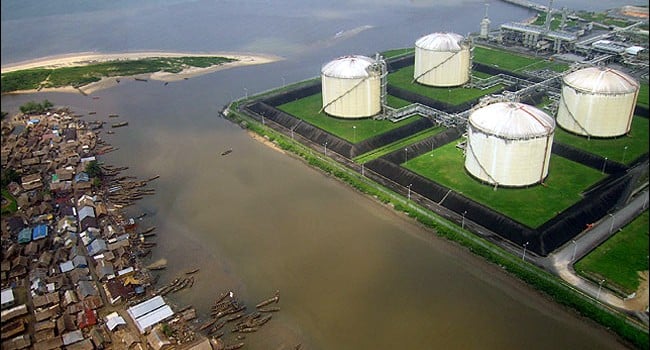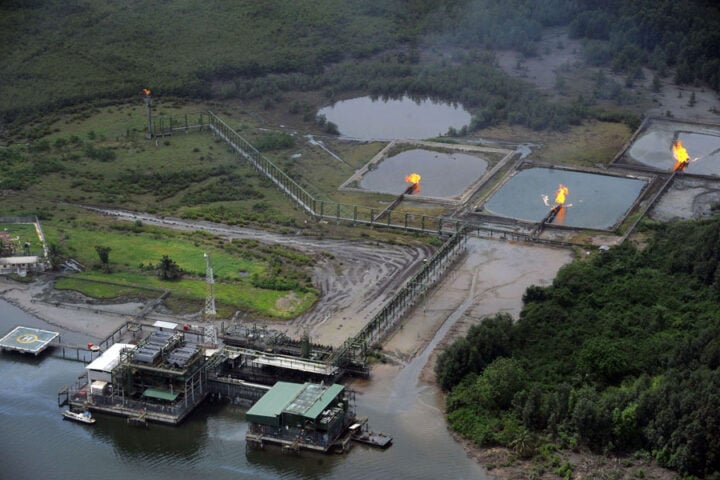The Economic and Financial Crimes Commission (EFCC) says the refusal of some oil and gas companies and relevant government agencies to comply with the annual Nigeria Extractive Industry Transparency Initiative (NEITI) industry audit process will be a costly mistake.
According to a statement by NEITI on Sunday, Ola Olukoyede, chairman of the EFCC, spoke as special guest while presenting the NEITI 2023 industry audit report in Abuja.
He said where the work of NEITI stops marks the beginning of EFCC investigations.
Olukoyede said the current NEITI report on the oil and gas sector is “now with the commission for further necessary action”.
Advertisement
According to the EFCC chairman, before the event, he signed off a remittance of a recovery of N1 billion to the beneficiary agency of government courtesy of NEITI report findings.
He commended NEITI for its credible data and promised to deepen cooperation with the agency.
On his part, Orji Ogbonnaya Orji, executive secretary, NEITI, welcomed the present administration’s support for the agency’s open data policy and announced that NEITI has commenced the establishment of a data center to serve as a one-stop shop for information and data on Nigeria’s extractive sector.
Advertisement
He explained that under the scope of the first phase of the project, covered under the 2023 and 2024 budgets, respectively, the hardware infrastructure with integrated communications facilities have been completed.
Orji expressed satisfaction with the completion of the hardware infrastructure, which is now in place.
He said the next phase of the project involves content development and management — data mining, cleaning, data migration, data storage, integration, data visualisation and analysis.
The NEITI executive secretary also added that the next phase would require “development, design and deployment of suitable software applications requisite skills and manpower including training and retraining of staff”.
Advertisement
“There is also the need for provision of other requirements needed not covered by earlier scope of the Data Center Project. This includes steady power supply which the current public power supply situation cannot guarantee,” he said.
Orji gave an assurance that working under the leadership of its board, the national stakeholders working group, all the challenges would be addressed and it will put the data centre into efficient use as soon as possible.
NEITI OIL AND GAS REPORT
According to the statement, over 5 trillion standard cubic feet of gas were produced in Nigeria in the last two years.
Advertisement
“A break down shows that 2.521 trillion standard cubic feet were produced in 2022 representing a decline when compared with 2.744 trillion standard cubic feet produced in 2021 while in 2023, the gas sector recorded a total production of 2.491 trillion standard cubic feet representing only 1% drop in gas production when compared with the total production recorded in 2022,” NEITI said.
The information and data, the agency said, are contained in its latest oil and gas industry independent report, released in September.
Advertisement
“From the Reports, NEITI further disclosed that a five (5) year trend analysis (2019 – 2023) of gas production in Nigeria showed that the highest production volumes of 3.048 trillion SCF was recorded in 2019 and the lowest of 2.491 trillion standard cubic feet was produced in 2023. This represented 82.73% increase in the country’s production capacity last year,” NEITI said.
“On gas utilization, the NEITI Report tracked that a total of 137.361 billion standard cubic feet of gas was used as fuel in 2022 from data provided by only 32 gas companies.
Advertisement
“On the contribution of the oil and gas industry to employment opportunities. during the period under review, the NEITI findings showed that only six thousand, seven hundred and twenty eight 6,728 persons were employed in the sector out of which (83%) men while only 17% were women. In the same direction, the sector witnessed a steady decline on the sector’s contributions to country gross domestic product (GDP).
“A trend of the contribution of oil and gas sector to GDP in Nigeria from 7.32% to 4.34% in 2022 and 5.75% to Nigeria’s total GDP of N202.365 trillion (US$478.06 billion) as at last year 2023.”
Advertisement
The report attributed the decrease to declining oil production due to insecurity, oil theft, and sabotage.











